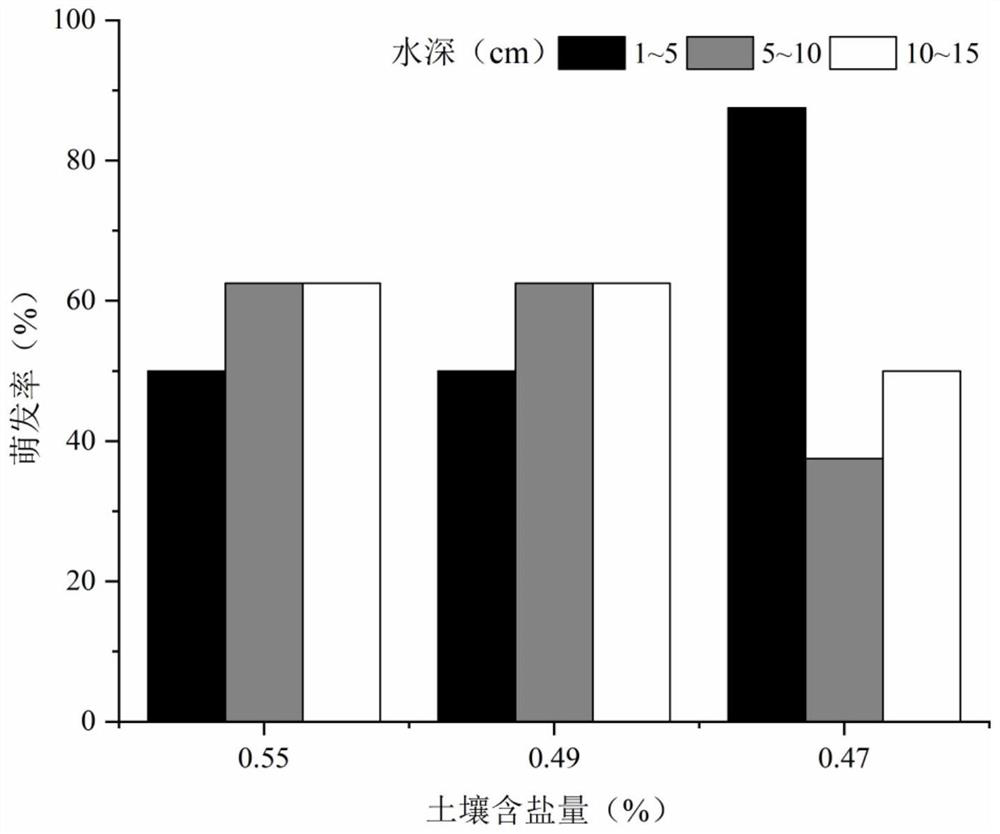Method for transforming soda saline-alkali soil waste fishpond into typha wetland
A technology for soda saline-alkali land and fish ponds, applied in land preparation methods, agriculture, applications, etc., can solve the problems of high mortality, low seedling germination rate, low population density, etc., achieve clear goals, strong operability, and avoid water resources. wasteful effect
- Summary
- Abstract
- Description
- Claims
- Application Information
AI Technical Summary
Problems solved by technology
Method used
Image
Examples
specific Embodiment approach 1
[0016] Specific implementation mode one: In this implementation mode, the method for transforming the abandoned fishpond in the soda saline-alkali land into a cattail wetland is carried out according to the following steps:
[0017] 1. Desalination of abandoned fish ponds and micro-landscape modification: Drain the abandoned fish ponds to be transformed into cattail wetlands, remove weeds, inject fresh water into the abandoned fish ponds, and turn the soil with a tiller at the same time to reduce the salt content of the soil Drain the water in the fish pond after 0.47%; then harrow the field with a rotary tiller;
[0018] 2. Collection and processing of cattail rhizomes: select strong cattails with strong reproductive ability, dig out the underground rhizomes of cattails, remove the top leaves, and then immerse the roots of cattails in water;
[0019] 3. Transplanting cattail rhizomes: Inject fresh water into the modified fish pond in step 1, the water depth is 1-5cm, and then...
specific Embodiment approach 2
[0026] Embodiment 2: The difference between this embodiment and Embodiment 1 is that in Step 1, the depth of the rotary cultivator harrowing the field is 15-20 cm. Other steps and parameters are the same as those in Embodiment 1.
specific Embodiment approach 3
[0027] Specific embodiment three: the difference between this embodiment and specific embodiment one is: the row spacing and plant spacing of transplanting cattail rhizomes in step 3 are 10-20 cm, and the depth of entry into the soil is 5-8 cm. Other steps and parameters are the same as those in Embodiment 1.
PUM
 Login to View More
Login to View More Abstract
Description
Claims
Application Information
 Login to View More
Login to View More - R&D
- Intellectual Property
- Life Sciences
- Materials
- Tech Scout
- Unparalleled Data Quality
- Higher Quality Content
- 60% Fewer Hallucinations
Browse by: Latest US Patents, China's latest patents, Technical Efficacy Thesaurus, Application Domain, Technology Topic, Popular Technical Reports.
© 2025 PatSnap. All rights reserved.Legal|Privacy policy|Modern Slavery Act Transparency Statement|Sitemap|About US| Contact US: help@patsnap.com

